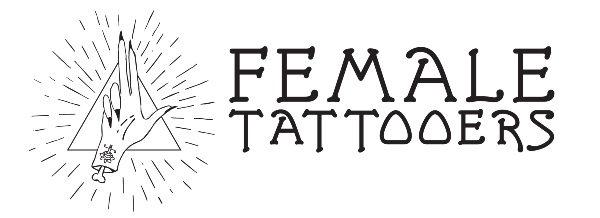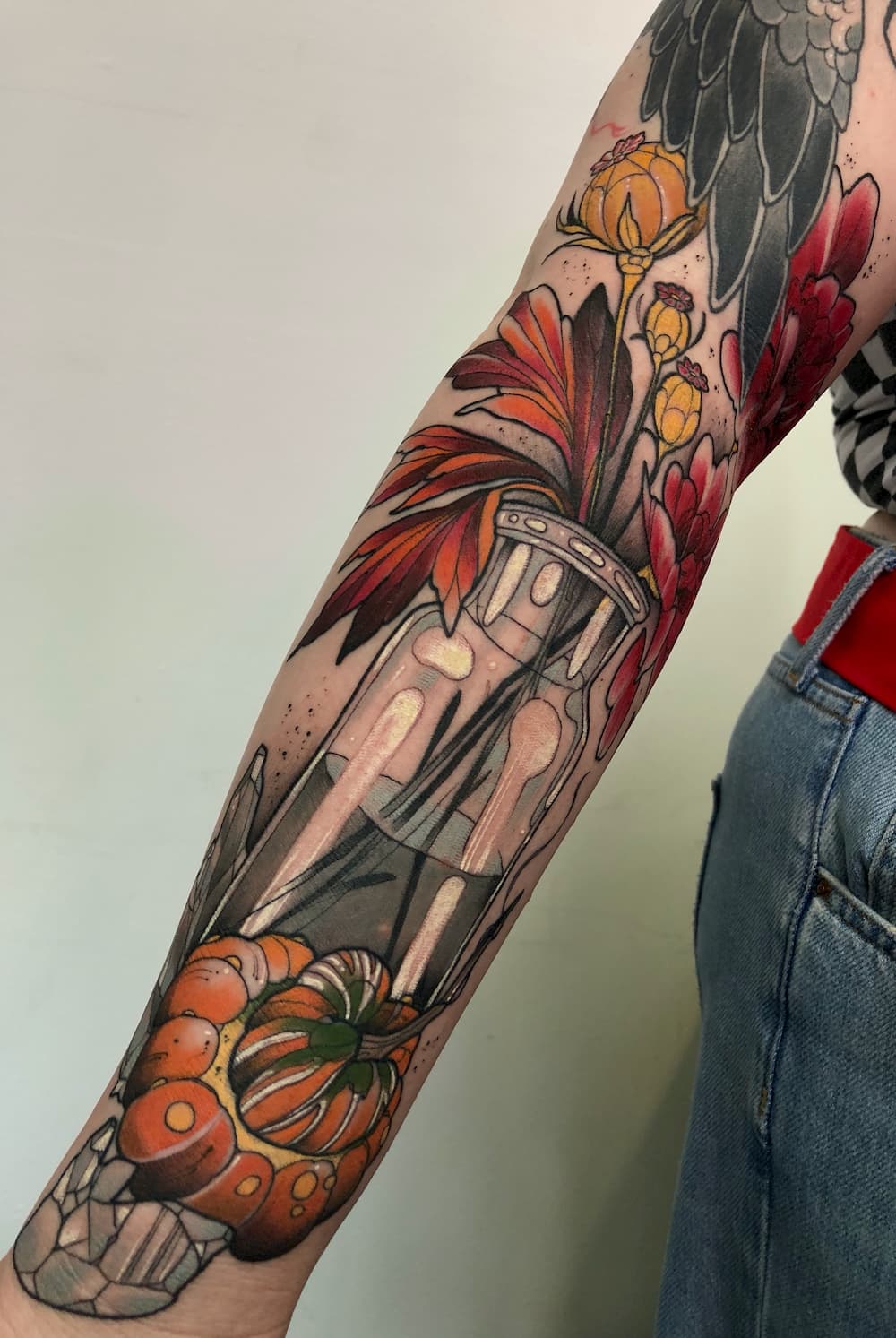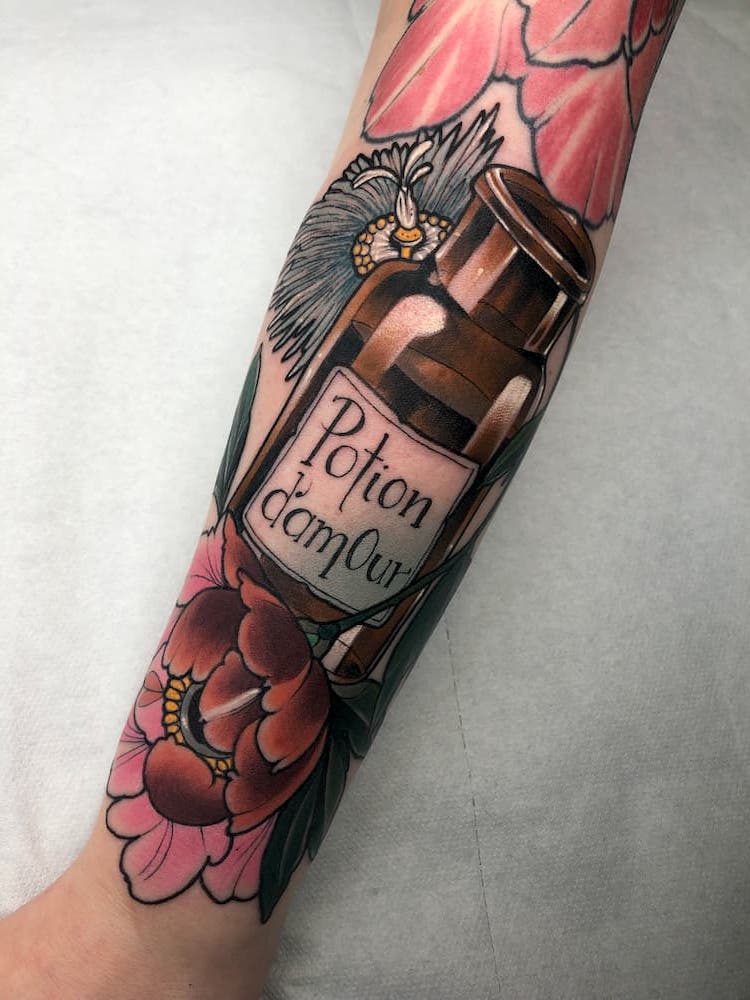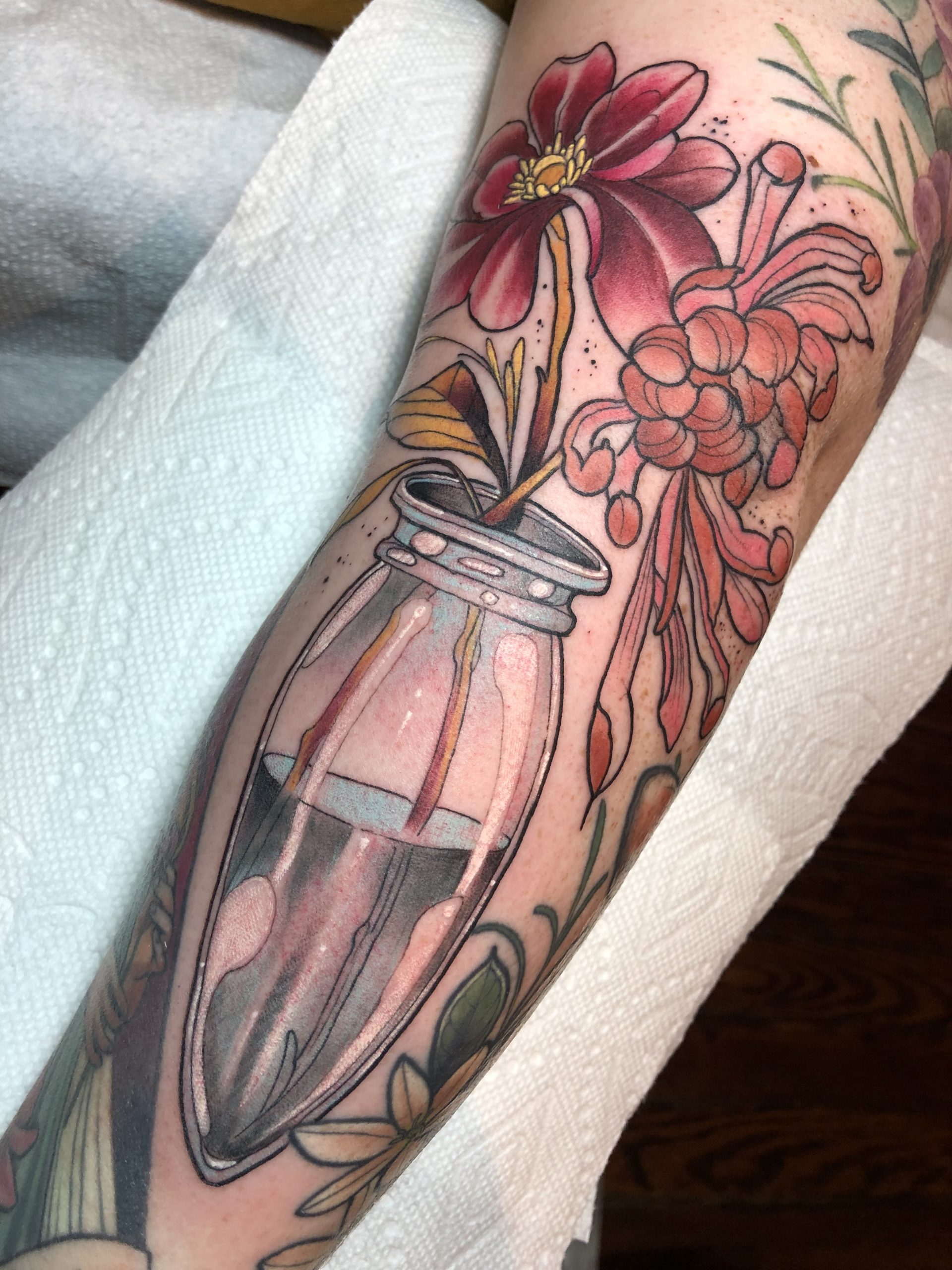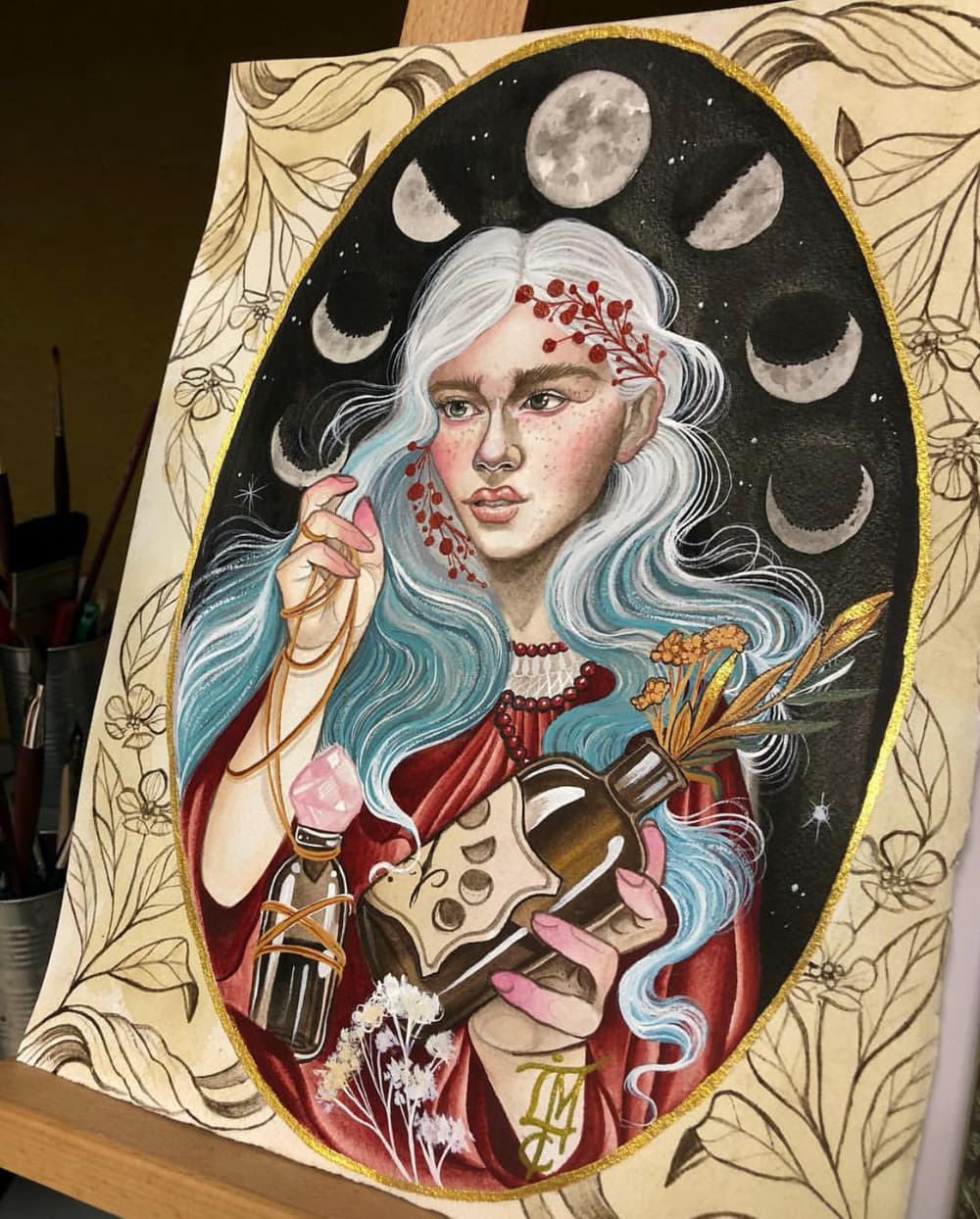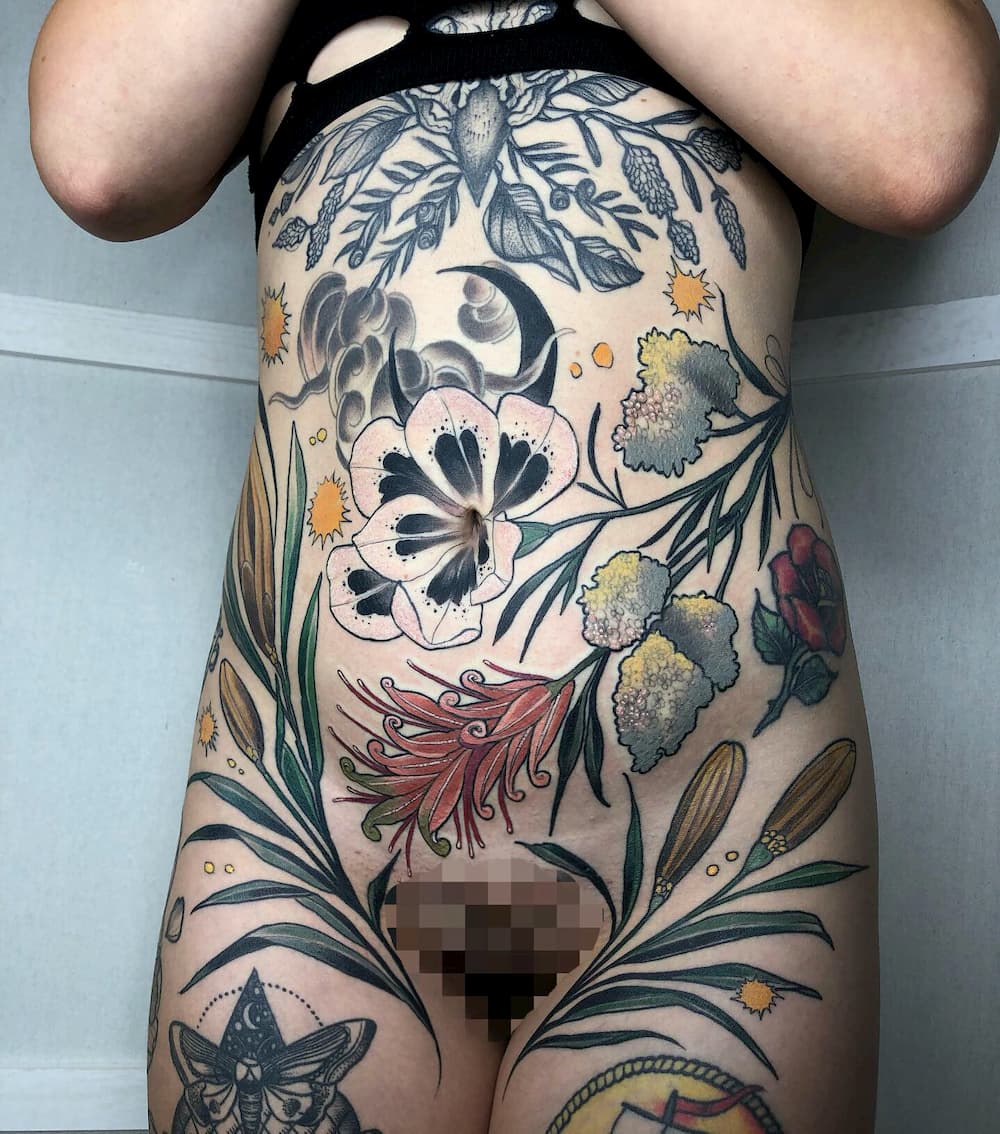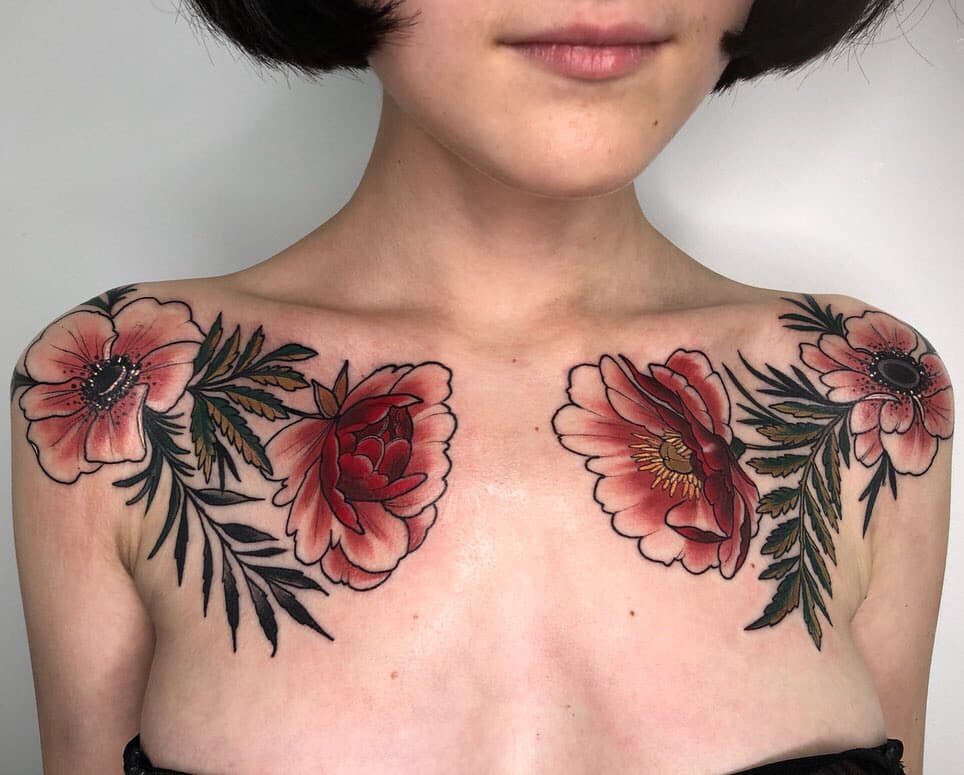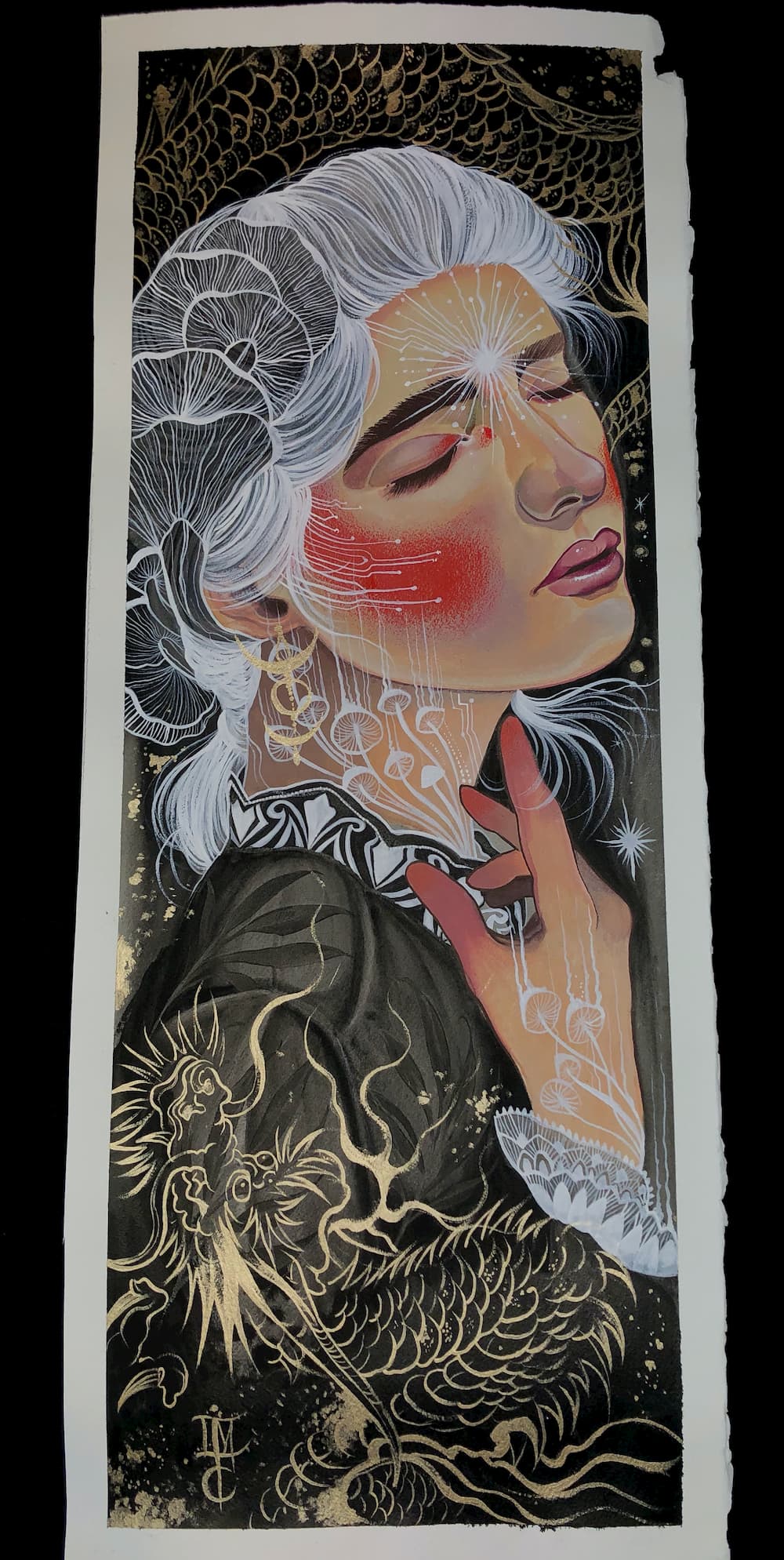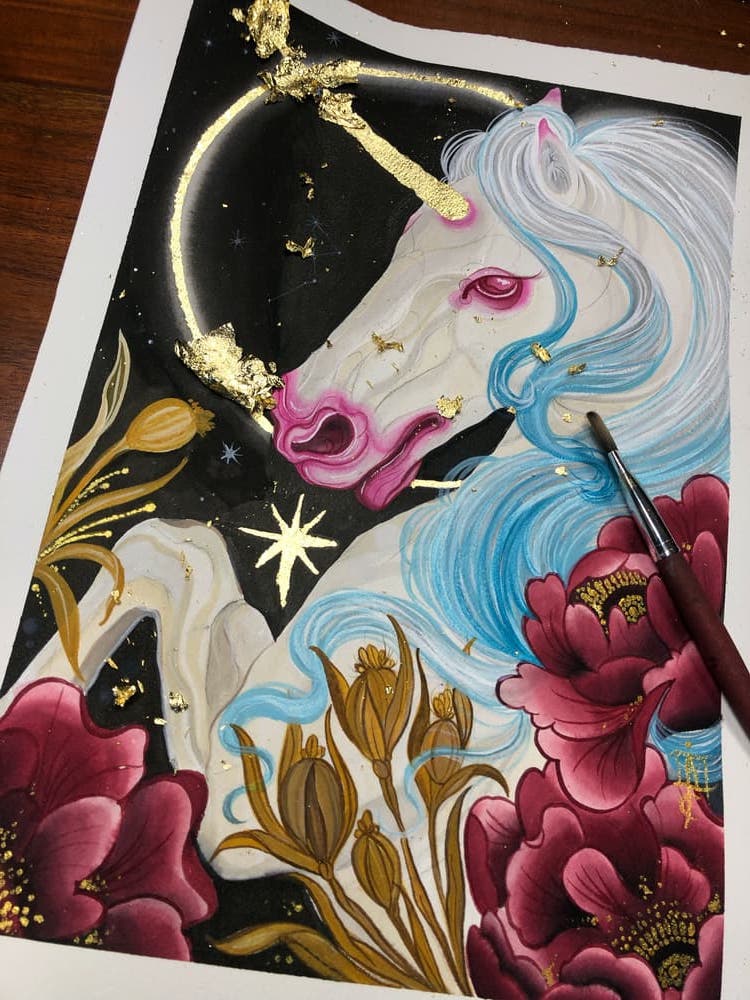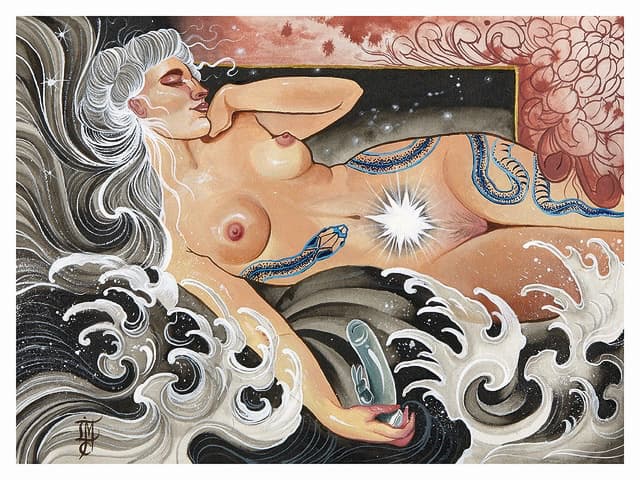Making Magic: Lorena Morato on Potions, Spirituality and the Supernatural
Attempting to describe tattoo artist Lorena Morato, who owns Golden Times Atelier in Cologne, Germany, is like trying to put words to smoke, or mist, or fog. She possesses an energy that is intangible and otherworldly—yet grounded in immediate kindness.
I met her during a recent trip to New York, where she participated in the annual Ladies, Ladies Artshow and did guest spots at multiple Brooklyn tattoo studios. During the opening reception of the show, the 35-year-old tattoo artist, who is originally from Brazil, floated around the room, striking up conversations with old friends and new acquaintances.
She seemed at home—effortlessly able to mix and mingle. “It might be my moon in Gemini that makes me so social,” she says. “Or being Brazilian.”
But Morato, who left Brazil when she was 20 years old, has been traveling the world and meeting new people for over a decade. And the experiences have shaped both her outlook and her art.
A Sense of Wanderlust
If you ask Morato how she wound up in Germany, she reminisces about being in the “punk scene” and traveling to Europe.
Morato and her friends squatted in abandoned houses and lived frugally. “It was so much fun for a girl in the beginning of her 20s,” she says. “As a teenager, I was always fascinated with traveling the world, but I had no money because I was a student.”
She worked in Barcelona as both a bartender and a babysitter before teaching herself how to tattoo. “I asked so many shops in town and around the city for an apprenticeship, but unluckily, I never got a proper one,” she says. “It was extremely hard back then. But I did my way, the way I could. Tattooing was a dream.”
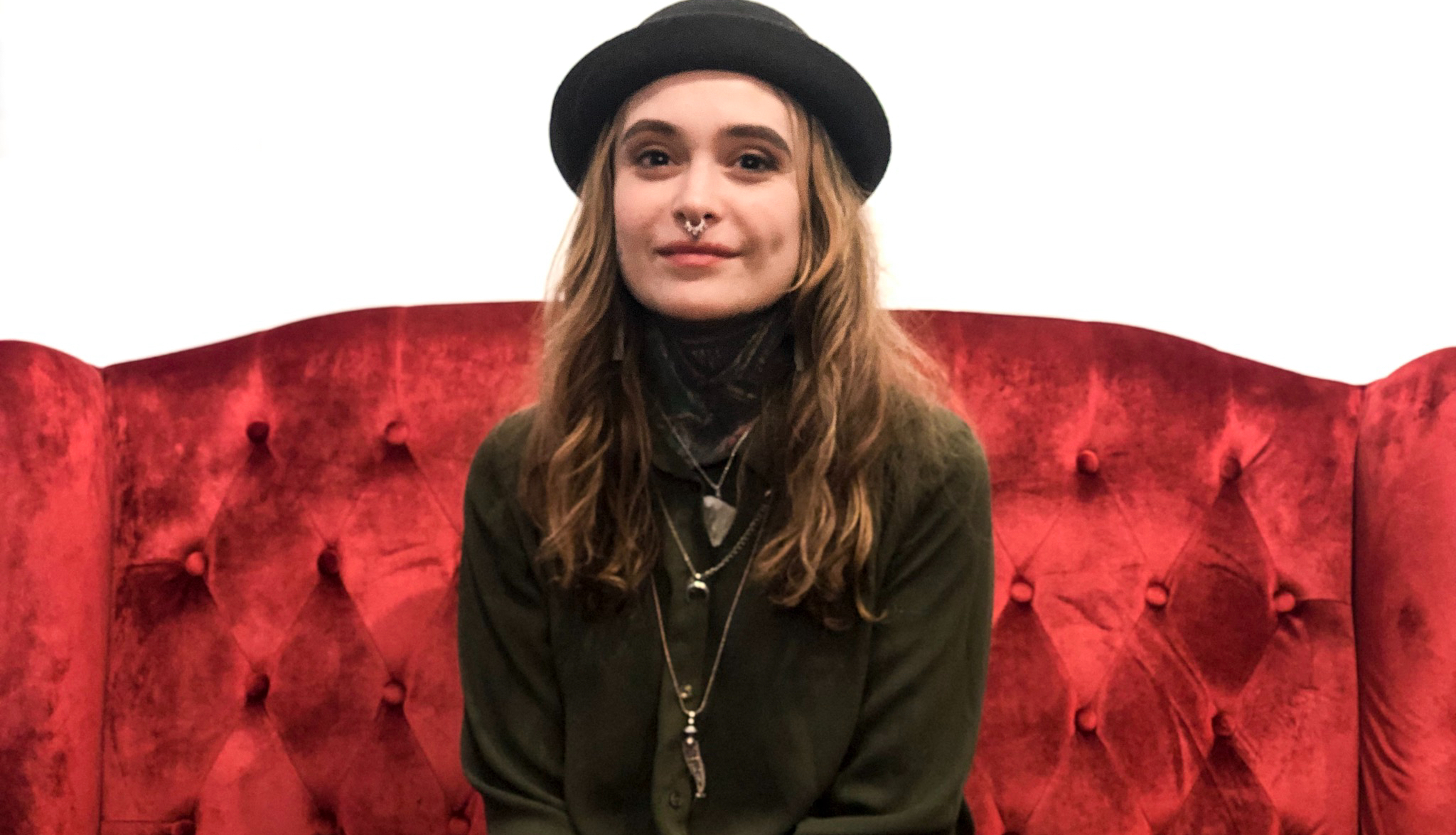
Morato followed an ex-boyfriend to Germany where she started working in a tattoo studio owned by Petra Kempka. “She is a super nice woman,” says Morato. “I learned a bit more about hygiene and had better equipment—for that I’m super thankful.”
Although she’s firmly rooted at Golden Times Atelier, which first opened in 2016, Morato still spends time traveling around Europe and overseas to do guest spots and attend tattoo conventions. She uses her travels as a way to connect with and learn from other artists.
“In a creative scene, connections are what make us grow and expand our creativity and minds,” she says. “There is a light in tattooing. This is when you leave all competition behind and connect with artists all around the world.”
Lorena Morato: Potion Maker
In another life, Morato admits that she would probably be practicing herbology and studying all the healing properties of plants and flowers. “I love soap science—it’s very magical to me,” she says.
Rather than switching careers, Morato has found a way to imbue her tattooing with a sense of alchemy. She is sought after for her potion tattoos, which combine apothecary jars with healing herbs, flowers, crystals, and other ingredients that provide lasting comfort to her clients.
“One day, I thought how nice it would be if I could make a self-love potion as a tattoo in a vintage apothecary bottle,” she says. “People went crazy, and I got so many requests. My heart was so full of joy.”
Since she posted that first potion tattoo to Instagram, Morato has inked countless healing elixirs on clients from all over the world.
She studies books that outline the powerful properties of plants, flowers, and stones, and uses her intuition to put together combinations based on her clients’ requests. She’s done potion tattoos to provide people with courage, strength, mental beauty, self-love, and even anti-anxiety and stress relief.
“I never really wanted to dedicate my job as a holistic therapist or a shaman, because tattoos are my life,” says Morato. “So, I believe my magical healing tools are my machines, and I’m happy if I can help people to heal making what I love the most.”
A Connection to Female Spirituality
In addition to potions, Morato draws inspiration from goddesses and divine feminine power.
She tattoos and paints female goddesses and says that these mythologies act as a mirror in her work to represent the strength of women and a deeper realm of consciousness.
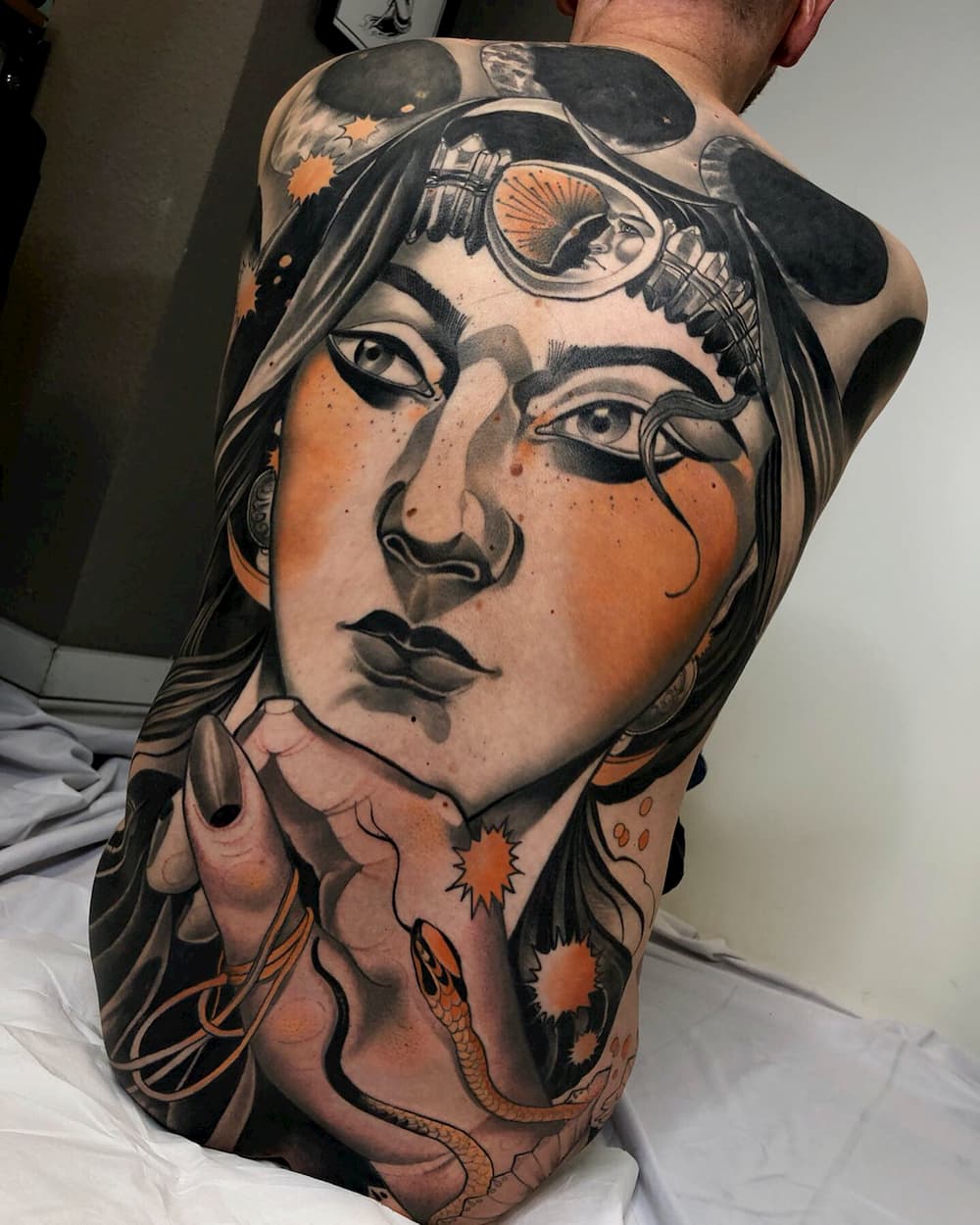
“I believe that our path on Earth isn’t just an ordinary one. We are heroes and we trace a story while we are here on this planet,” says Morato. “That’s why I’m fascinated with goddesses—because they represent the feminine power and identity each of us have inside.”
Morato is personally drawn to the ancient Sumerian goddess Inanna, who is known as the “Queen of Heaven.” She journeyed through the underworld and faced darkness and fear head on.
“Archeologists found—in the ancient city of UR—a poem written by a priestess of her temple, considered the first poet of humanity and the first poem ever written by this woman. The name is ‘ninmesarra’ and means ‘the exaltation of Inanna, the exaltation of the great protector goddess,’” Morato says. “I think leaving home so early to the unknown makes me feel identified with her mythology.”
Morato explains that the magical, mythical nature of her work is heavily influenced by her upbringing.
“I was raised by a grandmother and a mother who were believers in witchcraft, the healing power of stones, and protector beings from other planets,” she says. “My mother told me fairytales and encouraged me to build altars in the garden for Mother Nature and my spirit guardians. I was a happy child who had so much creativity around me.”
In addition to a childhood filled with daily magic, Morato says that she had shamantic experiences in Brazil that also inspire her work.
“From time to time, when I go to Brazil, I participate in women’s circles and some beautiful shamanic ceremonies to connect with my ancestors,” she says. “This brings an immense influence into my work. I believe that there is something other than what we can see and touch. There is energy in our body just like radio waves—we don’t see them but they are there.”
When she’s not tattooing, Morato focuses in on other hobbies that help her express her sense of spirituality, such as painting. She experiments with watercolor, acrylics, gouache, and Indian inks to translate her visions to paper.
“Painting is something that relaxes me. It’s my therapy when I’m sad or even a way to express my happiness and spiritual visions,” she says. “Painting is more for myself—it’s for pure fun and joy.”
Staying Connected to Other Artists
Morato doesn’t believe in competition between artists. Instead, she works hard to foster a sense of togetherness in her studio and in her travels. “My shop is a portal of meeting,” she says. “We should always remember that each one of us is a unique being in the universe. We should appreciate that and celebrate others’ diversity.”
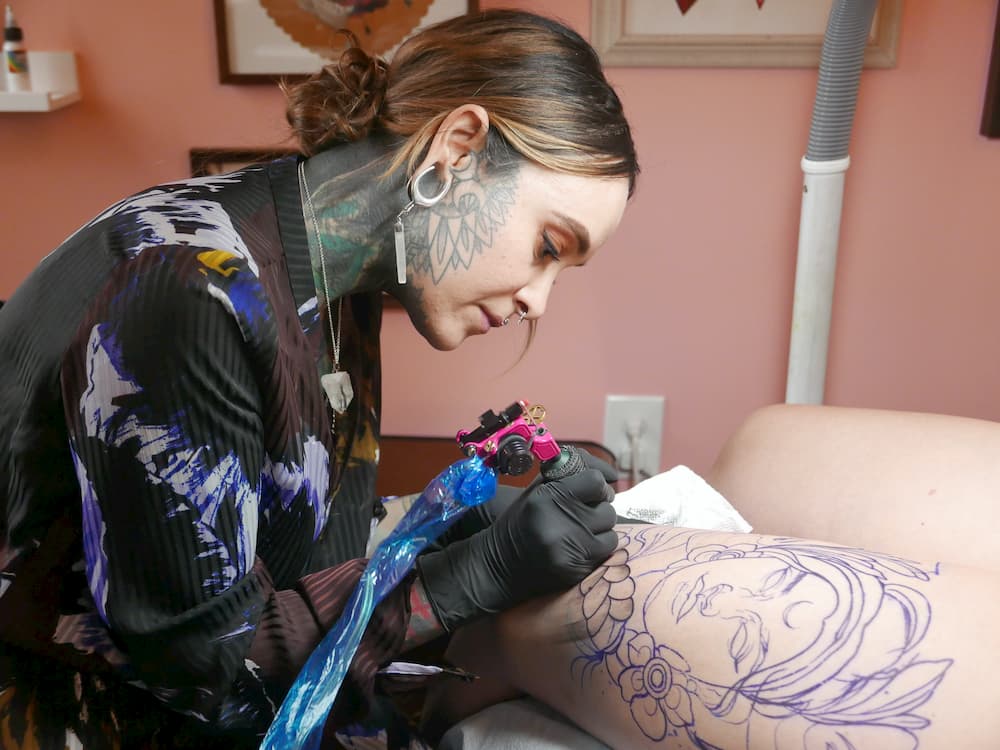
In addition to guest artists that come through her shop, Morato considers herself lucky to have developed friendships all over the world with other talented tattoo artists. She cites both Deborah Cherrys and Wendy Pham as close friends and endless sources of inspiration. “These two are some of my favorite artists in the industry and their work inspires me so much,” she says.
But it’s not just female friendships that Morato values. She simply believes is fostering a mutual connectedness—one that transcends gender, race, or religion.
“We should empower each other constantly as men or women, as workmates, as friends—as humans,” she says. “If you go against each other, you stop progressing, and this feeling won’t bring you anything good. We can always learn from each other if we allow it.”
